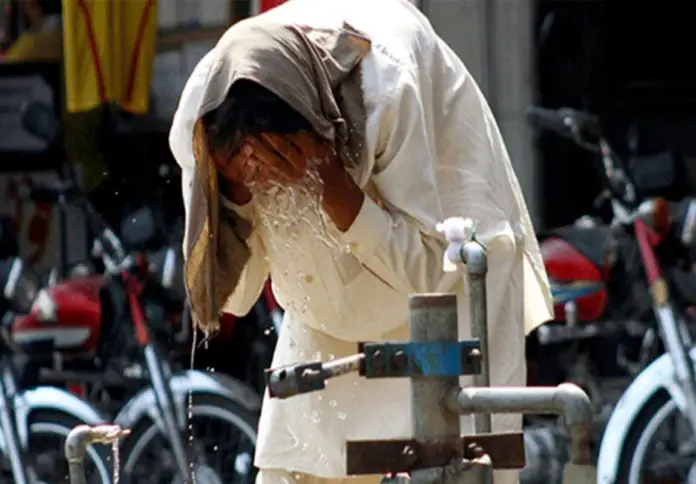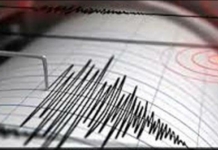Minister for Climate Change, Sherry Rehman, urged the federal and provincial governments to take precautionary measures to manage the intense heatwave, which touched highs of 47 degrees Celsius (116.6 Fahrenheit) in parts of the country.
“South Asia, particularly India and Pakistan are faced with what has been a record-breaking heatwave. It started in early April and continues to leave the people gasping in whatever shade they find,” Rehman said in a statement.
Temperatures were predicted to rise by 6 to 8 degrees Celsius above average temperatures after the hottest March on record since 1961, she said.
More than a billion people are at risk of heat-related impacts in the region, scientists have warned, linking the early onset of an intense summer to climate change. For the first time in decades, Pakistan had gone from winter to summer without the spring season, Rehman said.
The government has also told provincial disaster management authorities to prepare urgently for the risk of flash-flooding in northern mountainous provinces due to rapid glacial melting, Rehman said.
Glaciers in the Himalayas, Hindu Kush and Karakoram mountain ranges have melted rapidly, creating thousands of glacial lakes in northern Pakistan, around 30 of which were at risk of sudden hazardous flooding, the climate change ministry said, adding around 7 million people were vulnerable.
The lead up to the religious holiday of Eid was dampened by the intense heat and regular power cuts as most of the population refrained from eating food and drinking water during daylight hours for the holy month of Ramazan.
The increased demand for power from rising temperatures combined with fuel shortages and infrastructure issues put pressure on Pakistan’s electricity system, leading to regular power cuts, known as load shedding.
Residents of northern Khyber Pakhtunkhwa province said that at times the power was out for between 10 and 14 hours a day, leaving few options to cool down.
“The weather is unreasonably hot these days but the hours’ long power load-shedding….further added to our miseries,” said Abdul Salam Khan, owner of a shoe brand in the northern city of Peshawar.
Khan said the heatwave had dented an expected surge in shoe sales ahead of Eid as many people stayed home in the intense heat while their stores struggled to operate during power cuts.
Meanwhile, the National Disaster Management Authority (NDMA) issued an early threat alert for glacial lake outburst flood (GLOF) in Gilgit Baltistan and Khyber Pakhtunkhwa due to predicted heatwave in the coming week and directed the quarters concerned to ensure proper preparedness and precautionary measures.
In a GLOF advisory, it said as per the alert issued by the Pakistan Metrological Department, the temperature in Gilgit-Baltistan (GB) and Khyber Pakhtunkhwa (KP) is expected to remain 5°C to 7°C higher than normal in the next 5 to 6 days, creating heatwave.
“The heatwave more likely will enhance the melting rate of snow and ice which may trigger glacial lake outburst floods and flash floods in vulnerable areas of GB & KP. PDMA KP, GBDMA & DDMA Hunza have been directed to remain vigilant, alert and to take all precautionary measures in light of Shishper Glacial Lake reformation and increased chances of GLOF and coordinate accordingly with local administration and concerned departments,” it said.
With extreme heat gripping large parts of India and Pakistan, the two countries are working to roll out life-saving health action plans to combat the heatwave, the World Meteorological Organisation (WMO), a Geneva-based UN agency, said Friday.
The extreme heat is impacting hundreds of millions of people in one of the most densely populated parts of the world, threatening to damage whole ecosystems, WMO said.
Working closely with health and disaster management agencies, the national meteorological and hydrological departments in both countries, plan to roll out heat health action plans, which have been successful in saving lives in the past few years, the weather agency said in a statement.







